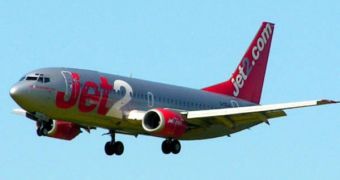In an unexpected move, four of the world's largest airline companies have “banded” together to back up a global emission-trading scheme and to also make recommendations to the United Nations policy-making teams on how the changes and new laws are to be implemented. Representatives from British Airways, Air France/KLM, Virgin Atlantic, Cathay Pacific, airport operator BAA and The Climate Group international non-governmental organization (NGO) say that they would like to see their ideas included in the next UN broad pact for fighting global warming and climate change.
At this point, the entire aviation sector is responsible for about 2 percent of the world's pollution and greenhouse gas emission, and that percentage is expected to rise over the coming years, as traveling by air will become more and more affordable. As a result, the European Union and top environmental and green groups worldwide have requested that the industry take immediate action to solve its own problems. Under the new proposal, the companies uphold that the entire international aviation sector should be regulated under the same legislation.
This would make trading-emission permits between companies a lot easier and thus increase the effectiveness of the system. In addition, the airlines would then be able to trade permits with representatives from other industries as well, which will make for a larger trading market. However, this scheme does not address the very purpose for which it has been created, namely to fight global warming, simply because it does not force companies to drop the amount of pollution they generate, but simply “encourage” them to do so.
“There are some airlines that still think 'we're only 2 pct of global emissions therefore let us get on with our job in peace.' That in Europe, not least as a PR pitch, doesn't work anymore. If airlines don't propose something credible environmentally but also that works well for them economically, then they will get saddled with some other option,” The Climate Group Policy Director Mark Kenber explained in an interview to Reuters, from London. His NGO specializes in talks with various businesses and governments on finding efficient ways of reducing pollution.

 14 DAY TRIAL //
14 DAY TRIAL //